Sustainability Communication Strategies
Online course
Develop practical tools and approaches to help navigate the complexities, challenges, and opportunities involved in communicating about sustainability.
3 weeks
4–6 hours of self-paced learning per week, entirely online.
Email: lseonline@getsmarter.com
Call: +44 2038 568 850
ABOUT THIS COURSE
There are growing expectations – from employees, stakeholders, and consumers – that businesses adapt their practices, operations and processes to meet new sustainability standards. With this comes the organisational need to authentically align communications practices with the sustainability expectations. This requires a communication approach that balances ethics, organisational reputation, and stakeholder interests.
The Sustainability Communication Strategies three-week online course from the London School of Economics and Political Science (LSE) aims to provide you with a toolkit to develop effective sustainability communication strategies and link communication with action. Through a combination of practical and theoretical insights, you’ll learn how to understand audience attitudes, values, and beliefs in order to frame sustainability messaging and communicate with your audience as a conversation partner.
"Not only should companies invest in compliance with rules and regulations and correct reporting, but they would also do well to deploy credible sustainability communication to inspire employees and stakeholders in the wider value chain to action."
Michael Wagemans, Head of Sustainability, KPMG Belgium
KPMG (2022).
WHAT THIS COURSE COVERS
With learnings that are strongly rooted in theory, research, expert insights, and real-world case studies, this course provides frameworks to guide you when planning and developing sustainability communications strategies. Over a period of three weeks, it explores the role of organisations as social actors, and identifies the associated expectations of their actions in relation to the environment and sustainability. It also unpacks the ways that communication plays into these dynamics.
Guided by LSE faculty, you'll learn about the important power relations that shape sustainability communication between organisations and their audiences – specifically within the context of a volatile, uncertain, complex, and ambiguous (or VUCA) world. Once you have an in-depth understanding of the shifting social, political, economic, and media landscape, you’ll have the opportunity to put your knowledge into practice using the TADD (Trust, Access, Dialogue, and Disclosure) model as you frame sustainability messaging and dialogue that speaks to your audiences.
A POWERFUL COLLABORATION
The London School of Economics and Political Science is collaborating with online education provider GetSmarter to create a new class of learning experience – one that is high-touch, intimate, and personalised for the working professional.
ABOUT LSE
The London School of Economics and Political Science (LSE) is a leading dedicated social science university. LSE was founded in 1895 with the aim of understanding the causes of things for the “betterment of society”. LSE seeks to make research and teaching practical and relevant to the real world. The School counts 18 Nobel Prize winners and 37 world leaders amongst its alumni and staff. LSE has students from over 160 countries, and over 100 languages are spoken on campus.

ABOUT LSE ONLINE CERTIFICATES
LSE is dedicated to addressing global issues through research and education, and is the most international of all British universities. By offering online certificate courses designed by expert LSE faculty members, the School aims to make its state-of-the-art social sciences research and insights available to a wider global audience. The supported, interactive online learning model allows participants to study from anywhere in the world, at times of their convenience, while still interacting with peers and teaching staff alike.

ABOUT GETSMARTER
GetSmarter, part of edX, partners with the world’s leading universities and institutions to select, design and deliver premium online short courses with a data-driven focus on learning gain.
Technology meets academic rigour in GetSmarter’s people-mediated model, which enables lifelong learners across the globe to obtain industry-relevant skills that are certified by the world’s most reputable academic institutions.
As a participant, you will also gain unlimited access to edX’s Career Engagement Network at no extra cost. This platform will provide you with valuable career resources and events to support your professional journey. You can look forward to benefits including rich content, career templates, webinars, workshops, career fairs, networking events, panel discussions, and exclusive recruitment opportunities to connect you with potential employers.
WHAT YOU’LL LEARN
Please note that module titles and their contents are subject to change during course development.
Explore the fundamental aspects of sustainability communications and the complex factors that affect organisations’ dialogue around sustainability.
- Discuss and define sustainability communications in relation to the VUCA (volatility, uncertainty, complexity, and ambiguity) sustainability model
- Articulate the role of an organisation’s context and audience in effective sustainability communications
- Analyse the challenges and opportunities involved in creating dialogue around organisational sustainability efforts
- Critique your organisation’s activity through a sustainability communications lens
Learn how to engage audiences and meet their organisational expectations by understanding their attitudes, values, and beliefs towards sustainability.
- Describe the importance of engaging audiences as conversation partners
- Articulate the challenges that can arise from ineffective audience mapping
- Investigate what an audience’s attitudes, values, and beliefs are towards sustainability and determine their expectations of the organisation’s sustainability strategy and communications
- Evaluate the four dimensions of the TADD model as a way of informing your sustainability communications approach
Explore the importance of analysing an organisation’s context and audience to effectively balance key considerations and frame a sustainability message.
- Discuss the importance of balancing ethical considerations, organisational reputation and stakeholder interests when communicating about sustainability
- Apply the four dimensions of the TADD model of communication to support a sustainability communications strategy
- Analyse the potential barriers and solutions to applying the TADD model in your organisational context
- Evaluate the strategies that can be used to effectively frame a sustainability message for an audience
- Formulate a message for your audience about a sustainability effort through effective framing
WHO SHOULD TAKE THIS COURSE
This course is designed for communications professionals, and those in public-facing roles, who want to help their organisation to communicate openly, authentically, and in a manner that is truly reflective of their organisation’s environmental impact. Those in the fields of marketing, media, and communications will gain practical insights into a growing business need, which can help them improve performance in their current role or pivot into a more specialised position. Professionals and mid-level managers, in any industry, who are responsible for shareholder and stakeholder relations, community engagement, or public relations will learn how to adjust their communications practices to align with the sustainability expectations of diverse audiences. This includes marketing communication roles such as social media management, brand management or content management. The course is also relevant to anyone who needs to be equipped to handle external reputation management.
THIS COURSE IS FOR YOU IF YOU WANT TO:
UNDERSTAND THE LANDSCAPE
Explore the social, political, economic, and media influences that can have an impact on organisational sustainability messaging.
GAIN PRACTICAL TOOLS
Develop an approach for sustainability communications informed by the TADD (Trust, Access, Dialogue, and Disclosure) model.
ENGAGE WITH AUDIENCES
Understand audience attitudes, values, and beliefs in order to frame sustainability messaging and communicate with anyone as a conversation partner.
YOUR SKILLS RECOGNISED
This online micro course offers you the opportunity to enhance your knowledge and career as you validate your skill set with an official badge from LSE.
Your digital badge will be issued to you through Accredible upon completion of the course. You’ll be able to share your badge on LinkedIn and other networking sites.
WHO YOU’LL LEARN FROM
These subject matter experts from LSE guide the course design and appear in a number of course videos, along with a variety of industry professionals.
YOUR COURSE CONVENORS

Lee Edwards
Professor of Strategic Communications and Public Engagement; Director of Graduate Studies, Department of Media and Communications, LSE

Claire Forbes
Guest Teacher, Department of Media and Communications, LSE
HOW YOU’LL LEARN
Every micro course is broken down into manageable, weekly modules designed to accelerate your learning process through diverse activities:
- Work through your downloadable and online instructional material
- Interact with your peers and learning facilitators through weekly class-wide forums and reviewed small group discussions
- Enjoy a wide range of interactive content, including video lectures, infographics, live polls, and more
- Investigate rich, real-world case studies
- Apply what you learn each week to quizzes and ongoing project submissions, culminating in the tools to effectively communicate about sustainability
YOUR SUCCESS TEAM
GetSmarter, with whom LSE is collaborating to deliver this online course, provides a personalised approach to online education that ensures you’re supported throughout your learning journey.
HEAD TUTOR
A subject expert who’ll guide you through content-related challenges.
SUCCESS ADVISOR
Your one-on-one support available during University hours (8am–5pm GMT) to resolve technical and administrative challenges.
GLOBAL SUCCESS TEAM
Available 24/7 to solve your tech-related and administrative queries and concerns.
TECHNICAL REQUIREMENTS
BASIC REQUIREMENTS
In order to complete this micro course, you’ll need a current email account and access to a computer and the internet, as well as a PDF Reader. You may need to view Microsoft PowerPoint presentations, and read and create documents in Microsoft Word or Excel.
BROWSER REQUIREMENTS
We recommend that you use Google Chrome as your internet browser when accessing the Online Campus. Although this is not a requirement, we have found that this browser performs best for ease of access to micro course material. This browser can be downloaded here.
ADDITIONAL REQUIREMENTS
Certain micro courses may require additional software and resources. These additional software and resource requirements will be communicated to you upon registration and/or at the beginning of the course. Please note that Google, Vimeo, and YouTube may be used in our course delivery, and if these services are blocked in your jurisdiction, you may have difficulty in accessing course content. Please check with an Enrolment Advisor before registering for this micro course if you have any concerns about this affecting your experience with the Online Campus.